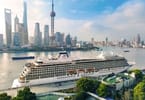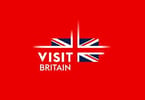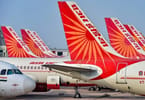Jonathan Wober:
Okay. You mentioned, obviously, currently the capacity is primarily domestic, but looking ahead to the forward bookings that you have for the summer, presumably the mix is more tilted towards international at that point.
Johan Lundgren:
Yes. You’re right. Like I said, it’s primarily the holidays, the big leisure destination resorts that indicates that there’s a demand on, and we know that leisure and holidays is going to recover quicker than business travel, as an example. We did a study here across five of our main core markets here earlier in the year in the start of January. It was no doubt that the primary purpose for the travel, for those people who wanted to travel, was to go on a holiday, to take a break. It was way over and above what came in second place, which was visit friends and family. Then, in third place was business travel, as you can imagine, so we know. This follows the same trend, by the way, that we’ve seen in any downturn, in any crisis. Holidays and leisure recovers one to two years earlier and quicker than business travel. I just think that we don’t need to do any more service to… or studies to recognize that people want to get away onto the holiday.
Jonathan Wober:
Coming out of this… Sorry. Coming out of this particular downturn, business travel’s always the slowest to recover, but isn’t there going to be a structural change in the demand for business travel? We can do what we’re doing now. We don’t need to travel for business.
Johan Lundgren:
I don’t agree. I really don’t agree. I mean, there are various studies being done on that, and some suggest one thing. Some suggest some other things as well. Look, there is no doubt that I think that this pandemic has shown us not all the opportunities with technologies. It’s also showed us the limitations. There is no doubt that this works fantastically if you’re having meetings with people that you know, or it is a one-on-one conversation such as this, but when it comes to establish new relationships, when it comes to talking with more than one person, if you want to have a creative debate, if you want to start looking into complexities, if there are difficult decisions that needs to be made, meeting in person is far superior.
I also think, underlying, that people and humans are social creatures. They want to do this. They want to meet, and they want to travel. They want and go establish those relationships, so I don’t believe for a moment that there going to be a structural shift of any significance. I’m sure there will be some changes, but don’t forget, there will also be general underlying growth. You would remember, and people who are old enough to remember 9/11, was a big debate then about, “Oh, travel will never be the same again. People won’t fly in anywhere near to the extent that they’ve done before.” Well, there were some security restrictions put in place and different procedures in airports and in the aircraft, but a couple of years later, there were record levels again.
You go back to the global financial crisis, 2007, 2008, was a big discussion then on, “Business travel will never return. You’re never going to be able to sell a business class seat, particularly on the European level.” Took a couple of years, and then we’ll start booming. I think that it’s difficult when you’re standing in a moment in time, and you take all that information that you have, and you don’t think about what the underlying trends historically are and drivers within these things to learn what the future’s going to be. If you’ve been long enough in the business, and I’ve been longer than most, even back to the Kuwait wars in the ’90s, these are things that I remember. “Oh, this will never happen again.” Well, it takes a couple of years, and then it’s back again.
I do think there will be changes to certain things. That’s not what I’m saying. I think, for instance, we know that sustainability will be a much more important topic. I think people will make more careful choices about companies they choose for product and services when it comes to who delivers something that has the least amount of pressure on the environment. We know that.
Jonathan Wober:
I want to come on to sustainability a bit later, but thanks for…
Johan Lundgren:
Zedi.
Jonathan Wober:
… the response on business travel. I just want to change tack a little bit, talk about your London airports strategy. I mean, Gatwick, obviously, has been your biggest airport for a long time in London, but recently, it’s become even more the case that you’ve focused almost exclusively on Gatwick. I mean, is it the case that you won’t… Stansted, Southend are just history for you, or will you go back there? Or, what’s your thinking in terms of how you manage London going forward?
Johan Lundgren:
Well, one of the core strategies of easyJet, and it’s always actually been the case, and it will remain so, and I think what we’ve done with Gatwick reinforces that, is to have leading positions at the primary airports. That really sits at the heart of the business model of easyJet. While we also have to adapt ourselves to an environment, which, for a few years, will require less capacity. That means that we also have taken a look about how we optimize the network and how we allocate the fleet that we have available that matches overall demand. When you do that exercise, we saw that there was an opportunities for us to focus more and get better traction from something that is already working well for us today. I think that, as you said, we have increased the capacity there with four aircrafts based there for the summers.
We now have a record level of 71 aircrafts in there. That means that that has had consequences in general. We took a look at the London as an area and decided that our key focus was going to be in Gatwick and in Luton. We continue to look, but here’s the thing. To your question, is this we’re never going to go back there, well, that’s not how it works. If we see, in the future, there are opportunities to create positions based on the fact that we can have a leading positions at some of these airports, we will always look to do that.
Jonathan Wober:
Yeah. I’m old enough to remember easyJet going into Gatwick, and it was seen as an opportunistic move at that time. I remember, yeah, Stelios talking about how you could get a better yield there. I guess that’s…
Johan Lundgren:
Yeah. Yeah. Well, it’s interesting. Our model works, and this is no secret, and you would know this. Our model doesn’t work very well if we don’t have scale. We need to get to that scale because then we get a presence in the market. That’s where we’re getting the efficiencies in what we do. Now, you can go in and have a lower amount of aircraft if it is a smaller airport, but clearly, you got to get up to that 10- aircraft size when it really starts ticking. Doesn’t mean that we can’t make it work on smaller. We have a number of very good performing bases that has less than 10 aircrafts, but in general, that is the case, and that’s what we are following.
ZOMWE MUNGACHITE PA NKHANIYI:
- There is no doubt that this works fantastically if you’re having meetings with people that you know, or it is a one-on-one conversation such as this, but when it comes to establish new relationships, when it comes to talking with more than one person, if you want to have a creative debate, if you want to start looking into complexities, if there are difficult decisions that needs to be made, meeting in person is far superior.
- I think that it’s difficult when you’re standing in a moment in time, and you take all that information that you have, and you don’t think about what the underlying trends historically are and drivers within these things to learn what the future’s going to be.
- Like I said, it’s primarily the holidays, the big leisure destination resorts that indicates that there’s a demand on, and we know that leisure and holidays is going to recover quicker than business travel, as an example.






















